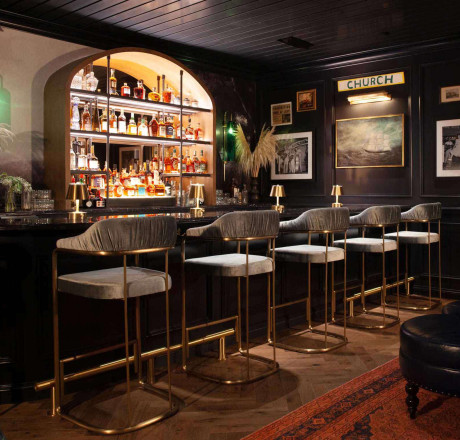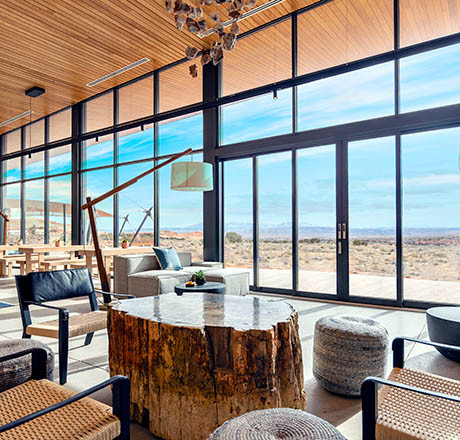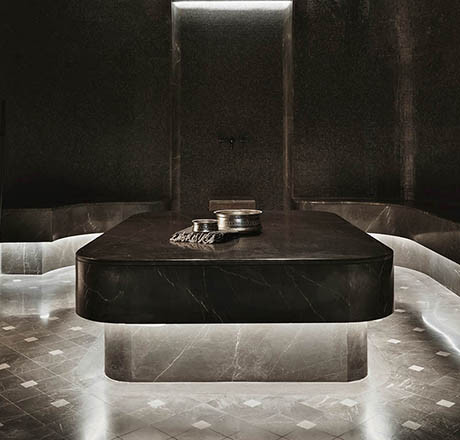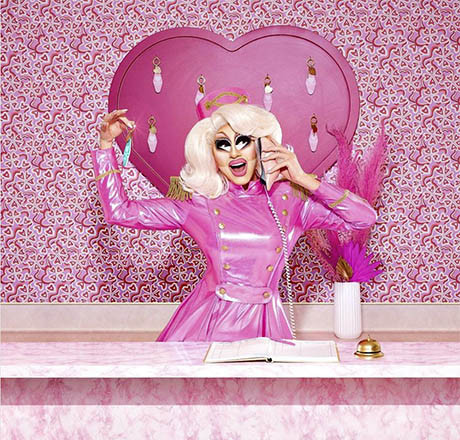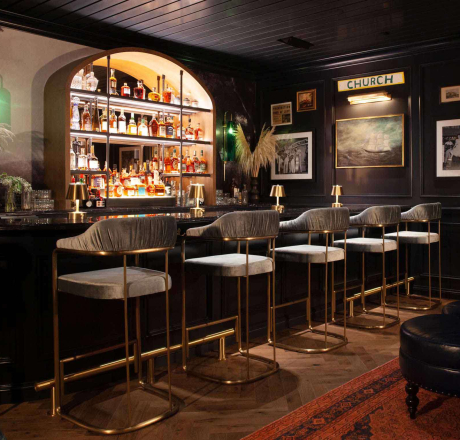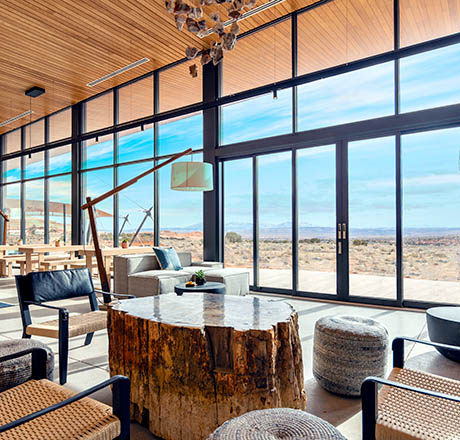United States of America
United States of America
Stolen Memories
Arriving at the mortuary hangar at Los Angeles International Airport, the pair saw a truck carrying a casket pull up. “Is that the Parsons remains?” Kaufman asked the driver, who answered in the affirmative. “The family has changed their plans,” Kaufman told him, making up a story as he went along: “They want to fly the body by private plane from Van Nuys.”
Not surprisingly, considering their state, the driver was wary. “Look, man, it’s late,” continued Kaufman. “We’ve got a couple of girls lined up, and then we got this call. We want to do this quickly.”
The paperwork was handed over and, as he was signing it (with the name Jeremy Nobody), a police car pulled up, blocking the exit. Thinking the gig was up, Kaufman walked towards the cop, waving the papers and asked him to move the car. The policeman apologised, backed his vehicle away and helped Kaufman move the casket from the gurney into the back of the hearse.
In the driver’s seat, Martin promptly took off and drove the hearse into a wall. The cop watched on incredulously, but didn’t stop them. Part one of the plan was a go.
Gram Parsons was born Cecil Ingram Connor III in Florida during the winter of 1946. His mother Avis was an heir to the Snively citrus fruit fortune; his father Cecil a World War II pilot who came home to work in the Snively Groves packing division. From an early age, Gram showed an interest in music, but he had a sad childhood. Cecil committed suicide two days before Christmas 1958. Avis remarried but she was unhappy and, although her new husband Bob Parsons loved Gram, he was a philanderer.
It was at Harvard University that Parsons found his true calling: country music. In the ensuing years he would join the Byrds, form the Flying Burrito Brothers and record an album with the Fallen Angels, called GP. Now these recordings are considered the beginning of the country-rock scene; Parsons the father of alt country.
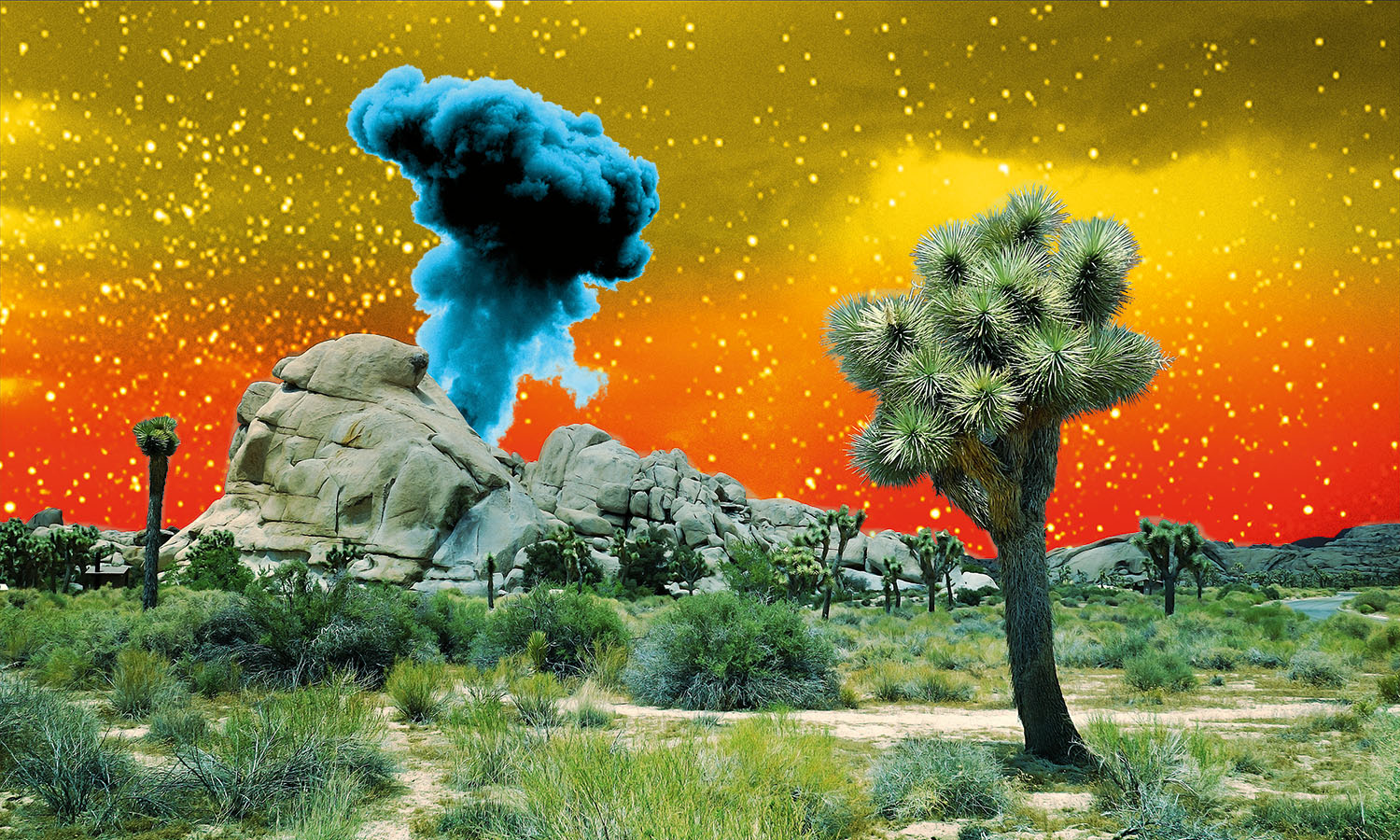

For all his genius – perhaps because of it – Parsons had a long, troubling relationship with drugs. Lots of them, often chased by enormous quantities of alcohol. In July 1973, at the funeral for friend and guitarist Clarence White, who’d been killed by a drunk driver, Parsons and Kaufman got loaded and made a pledge: the first to die would be taken by the other to Joshua Tree and cremated. Not for them a stuffy funeral attended by family and acquaintances neither cared for.
Joshua Tree, a stunning desert area in south-east California, had become a place Parsons loved. He’d been going there for a few years to get high and, from Cap Rock, stare at the night sky looking for shooting stars and UFOs. He’d even taken Keith Richards, Anita Pallenberg and Marianne Faithfull out there one night to enjoy the psychedelic view.
Parsons had just finished recording a new album – Grievous Angel, with Emmylou Harris – when, in September, he headed out to Joshua Tree with some friends. Days later Kaufman took a phone call – Gram was dead. In his autobiography, Road Mangler Deluxe, Kaufman says the cause was a morphine overdose. The autopsy report, however, names the cause of death as drug toxicity – the morphine may have been the final straw but it was Parsons’s years of drug and alcohol abuse that sealed his fate. He was 26 years old.
Kaufman blew into town, cleared room number eight at the Joshua Tree Inn of any drugs before the police arrived, and whisked away the female hangers-on. Back in Los Angeles though, he railed against Bob Parsons, who had organised a family-only service in New Orleans. For some reason, Kaufman thought Bob was after his son’s estate, but Gram was married (however unhappily) at the time. His wife Gretchen was to inherit the little money that was left from his mother’s family and, up to that point, Parsons had only ever received one royalty cheque for his music.
So began Kaufman’s plan to carry out his friend’s wishes. Clear of the airport and the cops, he and Martin drove Parsons into the desert, stopping on the way to buy a can of petrol and eat a burger. At Cap Rock, they unloaded the coffin, opened the lid and poured in the petrol. According to Kaufman, he played ‘gotcha’ with the corpse, touching the autopsy scar on Parsons’s chest before flicking the singer’s nose. He poured in the petrol and threw in a lit match. The coffin went up in a ball of flames that shot into the sky. Seeing lights in the distance, Kaufman and Martin got back in the hearse and took off, scared the police had caught up to them. They hadn’t, and Parsons’s body was discovered the next day by hikers.
It took the police a while to catch up with the body snatchers, and they were charged with misdemeanour theft, fined $300 each and ordered to pay back about $700 for the destruction of the coffin. Kaufman, who had no money, organised a party – part wake and part benefit – to raise the funds.
In some ways, Kaufman’s actions made Gram Parsons far more famous than he might well have been had Bob and the family had their intimate funeral. It’s the legend that still brings new listeners to his extraordinary catalogue of songs, as well as Grievous Angel that was released posthumously to critical acclaim. But for some of Gram’s friends and his family, it robbed them of an opportunity to mourn him properly. The claims that Bob was after Gram’s money are spurious at best. Despite being in the midst of divorce proceedings, Gretchen was entitled to whatever there was. In the end, Parsons’s remains were taken to New Orleans where his family buried him at Memorial Lawn Cemetery, where he lays beneath a gravestone carved with lyrics from his song ‘In My Hour of Darkness’: “Another young man safely strummed / his silver string guitar / And he played to people everywhere / Some say he was a star / But he was just a country boy. / His simple songs confess / And the music he had in him / So very few possess.”
Words Carrie Hutchinson
Tags: desert, music, united states of america, usa
 (
(


